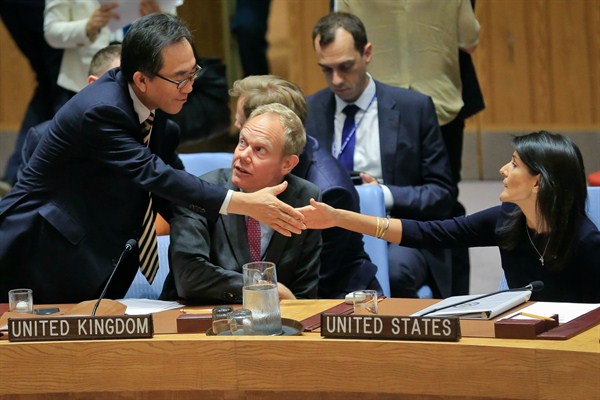The North Korean crisis is turning into a laboratory experiment about how to avoid war: with words, or with more demonstrations of force? While many in Washington would like to believe that diplomacy works hand in hand with deterrence and other instruments of American power, President Donald Trump seems to see diplomacy as working at cross purposes with his strategy.
U.S. diplomacy has been on the defensive lately, unable to move some new crises—such as the ongoing dispute between Qatar and other Gulf Arab states, or the contentious referendum on independence in Iraqi Kurdistan—toward a peaceful resolution. It seemed like good news to learn that Secretary of State Rex Tillerson had a brief encounter with his Iranian counterpart during last month’s United Nations General Assembly. And even better news that he was using various channels to communicate with the North Korean government about the possibility of talks to defuse the current tensions over Pyongyang’s nuclear tests and threats. It was encouraging to know that the normal function of keeping lines of communication open with problematic countries was still operational.
But poor Mr. Tillerson was slapped down publicly this weekend by his boss, who conveyed disdain for the niceties of diplomacy by tweeting that trying to talk to North Korean leader Kim Jung Un was a waste of time. It’s worth examining how diplomacy can serve such a fraught situation, and how it can sometimes be marginalized or deemed unhelpful in others.

